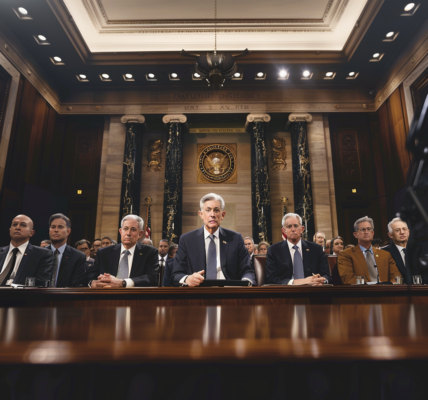The Federal Trade Commission (FTC) has taken a significant step in the realm of fair trade practices by filing a lawsuit against Southern Glazer’s Wine and Spirits, the largest distributor of wine and spirits in the United States. This legal action, announced on December 12, 2024, highlights allegations of illegal price discrimination that favor large retail chains over smaller businesses.
Southern Glazer’s, which ranks as the 10th largest privately held company in the nation, reportedly generates around $26 billion in revenue from its sales to retail customers in 2023. The FTC’s complaint, filed in a Los Angeles federal court, asserts that the distributor has been providing substantial discounts and rebates to major retail players like Costco, Kroger, and Total Wine & More, while neglecting smaller, independent businesses such as local liquor stores and neighborhood grocery shops.
According to the FTC, Southern Glazer’s has controlled approximately one-third of the wine and spirits market in the U.S., which raises concerns about the competitive landscape for smaller retailers. The lawsuit claims that since at least 2018, Southern Glazer’s has deprived these smaller businesses of critical access to discounts that would allow them to compete effectively against larger chains. This practice is alleged to violate the Robinson-Patman Act, a federal law aimed at preventing anti-competitive practices by prohibiting price discrimination.
FTC Chair Lina Khan emphasized the importance of a level playing field in the marketplace, stating, “When local businesses get squeezed because of unfair pricing practices that favor large chains, Americans see fewer choices and pay higher prices — and communities suffer.” She further noted that the FTC’s actions are intended to protect fair competition and restore legal standards that have been overlooked in recent years.
The lawsuit has sparked a debate among FTC commissioners, with Khan and two other commissioners supporting the legal action, while two dissenting commissioners, including Andrew Ferguson, expressed concerns. Ferguson, who has been nominated to replace Khan as chair of the FTC in January, pointed out that the agency has not pursued a claim under the Robinson-Patman Act in nearly 25 years, raising questions about the FTC’s approach to enforcement in this area.
The implications of this lawsuit extend beyond just Southern Glazer’s and the specific retailers involved. If the FTC’s claims are upheld, it could lead to significant changes in how distributors operate and how they price their products for different types of retailers. This case may serve as a precedent for future enforcement actions aimed at ensuring fair competition in the beverage distribution industry.
As this legal battle unfolds, the spotlight will be on the broader impact of price discrimination on local economies and the viability of small businesses in the face of corporate dominance. The outcome of this case may not only affect the parties involved but could also reshape the landscape for independent retailers across the nation, ensuring that they have a fair chance to compete in a market increasingly dominated by large chains.
The FTC’s commitment to enforcing the Robinson-Patman Act reflects a growing concern about the power dynamics in retail markets, particularly as consumers face rising prices and diminishing choices. As the case progresses, stakeholders from various sectors will be watching closely to see how it may influence future business practices and regulatory approaches in the industry.





